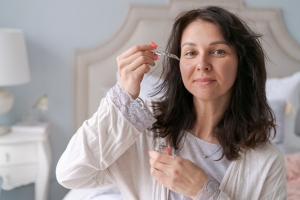The idea of luxury has always been tied to material things, designer clothes, exclusive vacations, or five-star dining. But in recent years, a new kind of luxury has emerged: the ability to prioritize mental well-being. Instead of being reserved only for times of crisis, mental health care is being embraced as a proactive form of self-care.
In a world where stress, burnout, and constant connectivity are the norm, caring for your emotional health may be the most important investment you can make in yourself.
Why Therapy Is Becoming the Ultimate Self-Care
As our understanding of health evolves, so too does our definition of self-care. People are beginning to see that true well-being isn't just about physical fitness or skincare routines, it's about creating balance between body, mind, and emotions. That's why many are turning to therapy as an essential part of their lifestyle.
Therapy isn't only about “fixing problems” anymore. For many, it's the mental equivalent of a personal trainer or nutritionist, someone who helps you strengthen your mindset, build resilience, and create long-term wellness strategies. What once carried stigma is now being reframed as a mark of self-awareness and even sophistication.
Moving Beyond Crisis Care
Historically, therapy was often viewed as something you sought only during moments of deep struggle, depression, trauma, or relationship breakdowns. But modern approaches are changing that perception. Just as people go to the gym before they are unwell, therapy is increasingly recognized as a tool for maintaining mental health before problems escalate.
This shift reflects a broader cultural embrace of wellness as prevention, not just treatment. By checking in regularly with a therapist, people can catch unhealthy patterns, practice new coping skills, and avoid reaching burnout altogether.
The Intersection of Luxury and Mental Health
Self-care has long been commodified through products and services promising rejuvenation, massages, spa days, and retreats. But therapy is gaining recognition as the “next level” of luxury because it offers something those indulgences can't: lasting transformation.
Investing in your mental health means:
- Greater emotional resilience in daily life.
- Stronger relationships built on communication and empathy.
- A clearer sense of purpose and self-confidence.
In a culture where success often means running at full speed, therapy gives permission to pause, reflect, and recharge. And that pause may be the rarest luxury of all.
What the Research Tells Us
Mental health is no longer a fringe topic, it's a public health priority. According to U.S. News & World Report, more than 40 million adults in the U.S. experience anxiety disorders each year, making them the most common mental health challenge in the country. While anxiety can be debilitating, evidence shows that therapy, particularly cognitive-behavioral approaches, helps reduce symptoms and build healthier coping strategies.
What's more, studies show that people who engage in therapy don't just feel less anxious or depressed, they often experience higher levels of life satisfaction and greater productivity. These outcomes highlight therapy's role not as a crisis intervention but as an enhancer of quality of life.
Everyday Benefits of Therapy as Self-Care

Unlike luxury items that offer temporary satisfaction, therapy creates sustainable change. Here are some everyday ways it enriches life:
1. Stress Management
Therapists teach practical tools like breathing techniques, grounding exercises, and reframing thoughts, skills you can use long after the session ends.
2. Better Decision-Making
When you're clear-headed and emotionally balanced, you're more likely to make thoughtful choices in both personal and professional life.
3. Stronger Self-Compassion
Therapy helps you quiet the inner critic, replacing self-judgment with understanding and self-kindness.
4. Healthier Relationships
From setting boundaries to improving communication, therapy offers strategies that benefit not only you but also the people around you.
Making Therapy Accessible
The perception of therapy as a luxury also comes with challenges, particularly accessibility. Not everyone has equal access to mental health services due to cost, availability, or cultural stigma.
Fortunately, teletherapy, sliding-scale payment options, and expanded insurance coverage are making it easier for more people to integrate therapy into their lives. The more it becomes normalized, the more accessible it is likely to become.
Integrating Therapy Into a Self-Care Routine
Think of therapy as one layer of your overall self-care plan, alongside physical activity, healthy eating, and mindfulness practices. Just like you schedule a workout or block out time for a spa treatment, you can build therapy into your routine.
Start small, perhaps with monthly check-ins, and expand as needed. The consistency is what matters most. Over time, therapy becomes less of an “extra” and more of an essential pillar of wellness.
Self-care is no longer just about surface-level relaxation; it's about cultivating deep, lasting well-being. As society embraces a more holistic view of health, therapy is emerging as the ultimate self-care investment, a modern luxury that pays dividends not in status, but in peace, clarity, and resilience.
By reframing therapy as a proactive choice rather than a reaction to crisis, we empower ourselves to live more balanced and fulfilled lives. And that might be the most valuable luxury of all.






